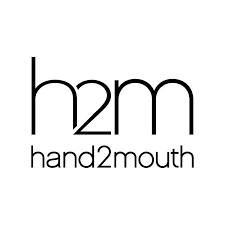EQUITY, DIVERSITY, AND INCLUSION POLICY
To support a full creative space for all, Hand2Mouth Theatre commits to championing policies and practices of cultural equity that empower a just, inclusive, equitable theatre experience.
Hand2Mouth Theatre values the role of diversity, equity, fairness and acceptance in the creation and dissemination of theatre and art. As such, Hand2Mouth does not discriminate on the basis of race, color, national or ethnic origin, religion, sex, sexual orientation, gender status, marital or parental status, age, income, veteran status or ability or disability in choosing collaborators, hiring staff, recruiting board members and volunteers and developing our audiences. In addition we do ask our artists, administrative staff or audiences to reveal any aspects of these categories unless they wish to do so.
Hand2Mouth is committed at all public and private events and spaces in providing a welcoming space for all people conducting arts & culture projects with special programming opportunities available for those from geographically underserved neighborhoods, communities of color, immigrants & refugees, persons with disabilities, LGBTQ communities, homeless & houseless communities, & other under-represented populations.
DEFINITION OF CULTURAL EQUITY
Cultural equity embodies the values, policies, and practices that ensure that all people—including but not limited to those who have been historically underrepresented based on race/ethnicity, age, disability, sexual orientation, gender, gender identity, socioeconomic status, geography, citizenship status, or religion—are represented in the development of Hand2Mouth theatre practices, policies and experiences, including providing support to diverse artists and theatre works; providing nurturing, safe spaces that are accessible and affirm diverse forms of expression and stories from traditionally marginalized people; and the fair distribution of available opportunities at Hand2MouthTheatre.
ACKNOWLEDGEMENTS & AFFIRMATIONS
In the United States, there are systems of power that grant privilege and access unequally such that inequity and injustice result, and that must be continuously addressed and changed.
Cultural equity is critical to the long-term viability of the arts sector.
We must all hold ourselves accountable, because acknowledging and challenging our inequities and working in partnership is how we will make change happen.
Everyone deserves equal access to a full, vibrant creative life, which is essential to a healthy and democratic society.
The prominent presence of artists challenges inequities and encourages alternatives.
MODELING THROUGH ACTION
To provide informed, authentic leadership for cultural equity, we strive to...
Pursue cultural consciousness throughout our organization through substantive learning and formal, transparent policies.
Acknowledge and dismantle any inequities within our policies, systems, programs, and services, and report organization progress.
Commit time and resources to expand more diverse leadership within our board, staff, company and advisory bodies.
FUELING FIELD PROGRESS
To pursue needed systemic change related to equity, we strive to...
Encourage substantive learning to build cultural consciousness and to proliferate pro-equity policies and practices by all of our constituencies and audiences.
Improve the cultural leadership pipeline by creating and supporting programs and policies that foster leadership that reflects the full breadth and diversity of American society.
Generate and aggregate quantitative and qualitative research related to equity to make incremental, measurable progress toward cultural equity more visible.
Advocate for public and private-sector policy that promotes cultural equity.

